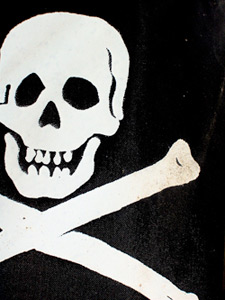
Video game piracy cost some £1.45 billion ($2.31 billion) in lost sales last year, as well as around 1,000 lost jobs. So says the Association of UK Interactive Entertainment (UKIE), which cautioned that even those impressive numbers are on the conservative side. That’s console piracy, mind you, which yet again throws a wrench in publishers’ arguments that piracy is only a problem on the PC, so draconian DRM regimes are a necessary evil. And you wonder why Sony has freaked out over the PS3 Jailbreak.
The BBC has a brief interview with a 25-year-old professional console modder of sorts. He charges £40 ($63) to modify a console, be it an Xbox 360, Wii, DS, PSP, or PS3—even if modding a PS3 takes little more effort than putting a few files on a USB flash drive. Once modded, a console can play pirated games all day long, which, as the UKIE claims, is pretty much destroying the industry. Keep in mind that older DSs can play pirated games with a special, and inexpensive, “blank” game card. Nintendo has been fighting these cards, most notably the R4, for years now.
The same console modder also sells pirated video games for £1 to £5 ($1.60 to $8).
Something tells me this modder won’t be in business much longer.
It should also be pointed out that game sales were down last year in the UK, from £1.9 billion in 2008 to £1.45 billion. Is that due to piracy? Is that because the industry has peaked? Maybe there were less “good” games?
The UKIE tries its best to scare the citizenry with scary words—“A game like Call of Duty could take two years to make and cost millions of pounds. So there are huge sums of money involved in individual games.—but it’s never really addressed why what amounts to a a Quake III mod costs so much money to make.
To say nothing of something like Minecraft, which was developed by one person without a multi-million dollar marketing budget backing him. I’d like to see the UKIE explain how something like that can happen in this terrible environment.